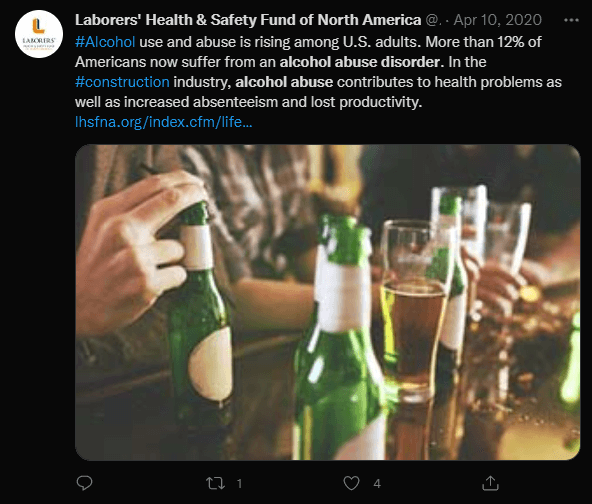CBT is one of the most widespread therapies available. Therapists use CBT for many mental health issues such as depression, anxiety, and OCD. But is it effective for alcohol abuse disorder? There’s a misconception that alcohol addiction is a person’s fault and, therefore, therapeutic interventions can’t help them. But, it’s not true. Keep reading to find out how CBT helps people and if it is effective for alcoholics.
What Is Cognitive Behavioral Therapy?
CBT is a psychotherapy technique where the therapist links the client’s thoughts and behaviors. It is a short-term therapy since the results appear faster (12 sessions or less). An American psychologist, Dr. Aaron Beck, invented CBT, and Dr. Albert Ellis took this further and refined it. Dr. Albert Ellis disclosed in an interview that his favorite Greek philosopher-Epictetus-philosophy helped him refine the technique. The philosophy goes, “Men are disturbed not by events, but by their opinions about the events.” From thereon, he made CBT, which helps people in emotional distress.
How Therapists Use CBT To Treat Alcoholism
Usually, people involve themselves in self-sabotaging behavior such as alcoholism to mask an underlying problem or condition. Thus, CBT has a double-pronged approach to treating alcoholism–Functional Analysis and Skills Training.
Functional analysis is about finding the events that led to alcohol abuse disorder. Thus, the client and the therapist dig deeper and probe into the past or present of the client. The process may surface a traumatic memory. Perhaps, the traumatic memory and its suppression can cause alcoholism. Either way, the sessions focus on the triggers that cause the client to grab a bottle. Once they work that out, they can avoid them and reduce their chances of drinking.
Skills Training uses techniques to deal with the thoughts and emotions that cause the urge to drink. It also tries to address healthier coping skills to deal with their feelings. Thus, even after discontinuing, the client can rely on these tools to avoid relapses.
How Effective Is CBT?
There has been plenty of research to study CBT. Perhaps there is so much research because CBT is a goal-oriented approach, and it’s easy to measure progress. CBT is effective for many mental illnesses like depression, anxiety, and PTSD. But is it practical for alcohol abuse disorder? The answer is a yes. Scientists have studied the effectiveness of CBT against alcoholism, and science supports its efficacy.
Scientists did more than 50 trials comparing the results to the controlled group and were randomized to show that CBT is effective. In some of the studies, CBT was most effective compared to no treatment at all. When researchers compared CBT to other treatments, the result was mixed. Some show it’s more or equally effective, while others show low efficacy. Another crucial finding in the research was that CBT works better when the client uses it with other methods such as Alcoholics Anonymous. Thus, CBT is not one shoe that fits all since everyone is different but is instead a technique that has brought relief to many families and people. Thus, CBT is worth giving a try.
Types Of CBT Techniques
Each patient is different, and thus one technique cannot help everyone. Therefore, within CBT, there are multiple techniques that CBT therapists use to help their clients live better and happier lives. Here are some of the standard methods:
Cognitive Restructuring
The story that plays in our head about the event matters more than the event. Thus, cognitive restructuring puts a microscope on the narrative in our heads and removes cognitive distortions. Therefore, the goal is to look at a negative thought pattern, restructure it, and bring awareness. An alcoholic might struggle with negative thoughts about abstinence; thus, the technique can help them rewire the idea.
Behavioral Assignments
The teacher gave us homework to strengthen our understanding of the subject in school. Similarly, behavioral assignments help clients apply and reinforce what they learned in the session. The tasks equip the clients for the real world and live without constant assistance from the therapist.
Exposure Therapy
When we face our fear, their hold on us loosens. But, sometimes, when we face fears, we can revert to old behaviors, such as drinking alcohol. In a controlled environment and with the supervision of a therapist, exposure to clients’ fears can help them assess and cope with them better. Thus, the therapist exposes the client to their triggers and gives them the tools to deal with them better.
Activity Scheduling
This technique plans something fun to bring positivity into the client’s life. Recovering alcoholics may plan something to be happier to avoid their triggers. It’s a great way to fill the vacuum left when the client leaves drinking.
Problem-Solving
But the client cannot solve everything with scheduling activities that give them joy. Life is also about dealing with the hard stuff. Thus, the client and therapist find healthier responses to the stresses in the client’s life. Therefore, instead of drinking every time a fight ensues with the client’s spouse, they can instead use what the therapist suggested to them.
Successive Approximation
In this technique, the client gets a reward for abstaining from alcohol in tiny approximations. It reinforces the habit of sobriety and helps the client stay clean.
Mindfulness & Breathing Skills
Sometimes people drink to decompress, which can have disastrous consequences if they suffer from alcohol abuse disorder. Instead, CBT therapists teach mindfulness and breathing to their clients to unwind and relax. Mindfulness and breathing skills are sometimes practical immediately, and the client gets better at them the more they do it.
Help Is Available
As we saw, CBT is a non-invasive way to help the client. We at Beat Addiction Recovery offer CBT modules, among other treatment components, to clinicians to help their patients with alcohol abuse disorder live happier and healthier lives.

